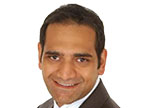Braces Consultation
Talk to Your Dentist
Before beginning any major dental treatment, including braces, it is vital that the patient speaks in detail with their orthodontist. Firstly, to establish if they actually need braces and secondly to discuss what kind of treatment and what kind of braces will suit them. If this is done through the NHS, you will get a choice of braces that is not as advanced as those offered by most private dentists. It is worth doing your research before visiting any dentist, as many have websites you can explore or word of mouth can be a big sell. Some private dentists only provide certain types of modern braces and are not able to give you the full range of treatment choices.
Begin the Treatment
Before braces are fitted, your orthodontist will want to examine your teeth to get a better idea of what problems you need correcting and to help decide which braces are most appropriate. Once you have chosen your dentist, they will probably want to take an x-ray of your mouth. This helps them to see how any problems with bite or crowding are affecting the jaw. This can also affect which types of braces are suitable for your treatment. You will also need to have an impression made of your teeth so that the manufacturer of the braces has a model of your teeth to use when making either the plastic or metal frame. Most expensive types of braces are designed to fit only your mouth, rather than standard “train tracks” which are just brackets and wires that are fitted into your mouth.
Having the impression taken can be unpleasant. A plastic mould filled with a gel-like substance is pressed onto your upper and lower jaw, to make a 3D model of what your teeth look like. The moulds have to be held there for some time which can make breathing difficult. Once the impression has been taken at the beginning of the treatment, you should only need to have it done once more at the end, and some dentists choose not to carry out this part of the process a second time.
It is important to discuss all the questions you have with your orthodontist in your early consultations. Discuss length of treatment, whether you are likely to experience any pain, what foods you can and cannot eat and, most importantly, how much it is going to cost and if it is possible to pay over a period of time. Dentists will be used to answering lots of questions from patients, as deciding to have braces fitted at any age is a major decision.
 Raha Sepehrara
Raha Sepehrara Anoop Maini
Anoop Maini Tif Qureshi
Tif Qureshi Adam Thorne
Adam Thorne